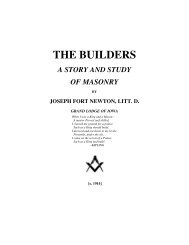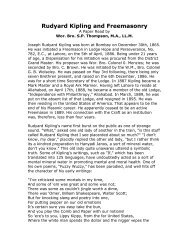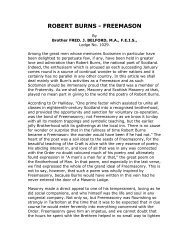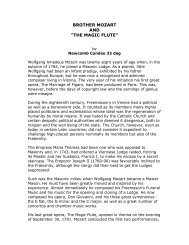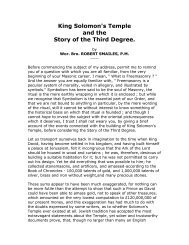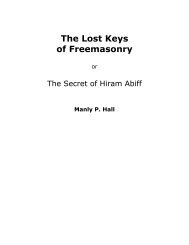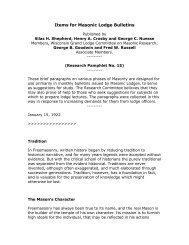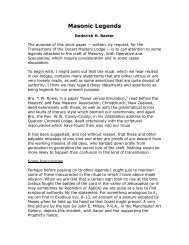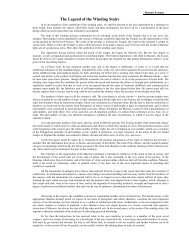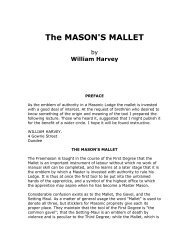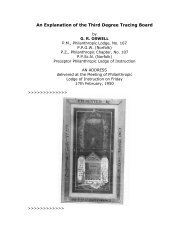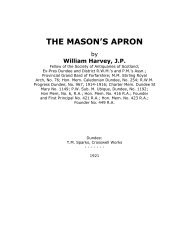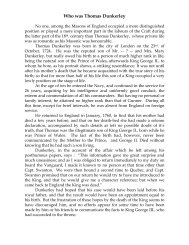The Albury MS. THE AMALGAMATED GUILD OF ... - RoseCroix.org.au
The Albury MS. THE AMALGAMATED GUILD OF ... - RoseCroix.org.au
The Albury MS. THE AMALGAMATED GUILD OF ... - RoseCroix.org.au
Create successful ePaper yourself
Turn your PDF publications into a flip-book with our unique Google optimized e-Paper software.
After the incorporation of the companies, it became the practice of the<br />
majority of them to present their charters in each successive reign for<br />
confirmation, and on these occasions some new privilege was usually<br />
sought. <strong>The</strong>se are termed inspeximus charters, they set out or recited<br />
the original and all subsequent grants.<br />
<strong>The</strong> next epoch in companies were the reigns of Henry VII. and VIII.<br />
Henry VII. became Master of the Merchant Tailors, and presided in<br />
their livery. At the same time an Act (19 Hen. VIL, c. 7) was passed, in<br />
restraint of bye-laws tending to monopoly.<br />
Among others, Stowe says of the Freemasons that the Masons,<br />
otherwise termed "Freemasons," were "a society of ancient standing<br />
and good reckoning, by means of affable and kind meetings divers<br />
times, and as a loving brotherhood should use to do, did frequent their<br />
mutual assemblies in the time of Henry IV., in the twelfth year of<br />
whose most gracious reign they were incorporated."<br />
By the new charters of James I. the constitution of the companies was<br />
altered, the courts being made self-elective instead of by the<br />
commonalty, no one being eligible who had not served as Master or<br />
Warden; they were constituted ad vitam <strong>au</strong>t culpam, with perpetual<br />
succession, with power to make ordinances, and summon the council;<br />
in fact, this court consisted of the Past Masters or Wardens of the<br />
company.<br />
<strong>The</strong> oath was altered and the liverymen made "full brothers;" the term<br />
of apprenticeship was fixed at seven years, and fines imposed for<br />
refusing to serve as Master or Warden.<br />
"Foreigners" were those without the pale, which extended to two<br />
miles; their encroachments were restrained. Sisters are no longer<br />
mentioned, and seem to have been discontinued.<br />
ENGLISH LODGES.<br />
JAMES I., who was Grand Master of Masons and patron of Inigo Jones<br />
between 1 6o3 and 1625, encouraged architecture. Jones, born in<br />
1572, was son of a citizen tailor of London, but his talent for drawing<br />
exciting attention, he was sent to Cambridge by his parents, and<br />
subsequently to Italy at the expense of Mr. Herbert, afterwards Earl of<br />
Pembroke. Later, Jones became Superintendent of Buildings to the<br />
King of Denmark; but resigning after a few years, he returned to Italy,



